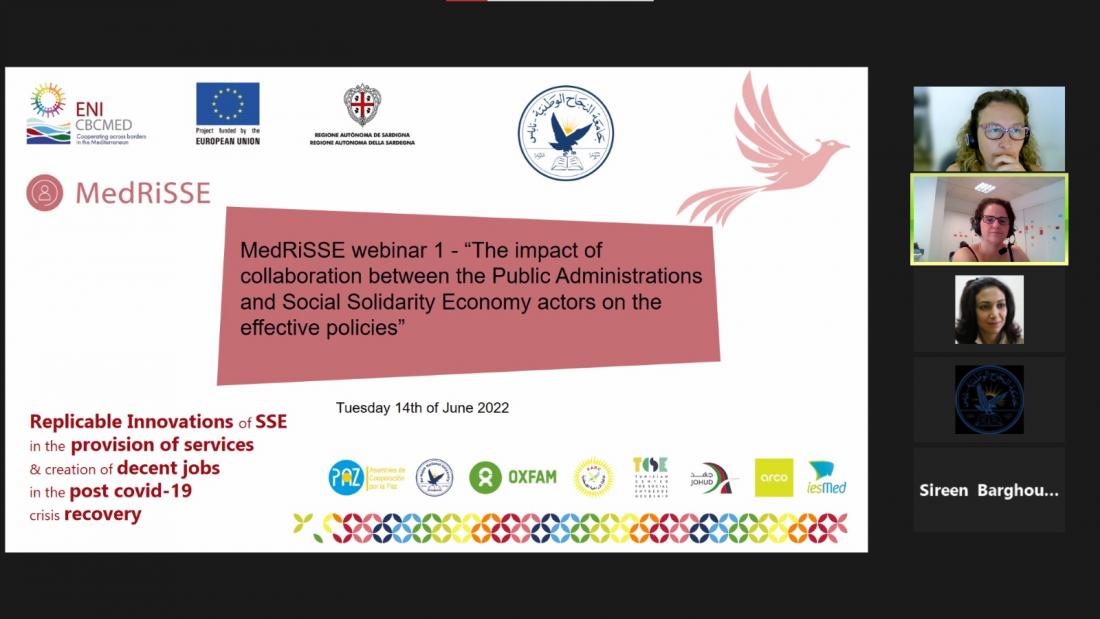MedRiSSE in Palestine organised its first webinar on Social and Solidarity Economy

MedRiSSE first webinar took place in Palestine on 14th of June 2022 to discuss and share the experiences regarding 'The impact of collaboration between the Public Administrations and Social Solidarity Economy actors on the effective policies'.
Organized by An Najah University (Palestine) in the framework of our project, the webinar - which is the first of a series of ten webinars - aimed to discuss the impact of collaboration between Social & Solidarity Economy actors (SSEs) and public institutions on policies that focus on Social & Solidarity Economy, to understand challenges to build collaboration between them, as well as thinking together how to overcome those challenges and how to enhance collaboration between the different actors to have effective policies based on the framework of the best practices.
It was attended by MedRiSSE partners and participants with an interest in social innovation and public sector innovation.
This webinar was based on discussion and dialogue among partners on the impact of collaboration between SSEs and public institutions on policies which aim for sustainable development and inclusion for marginalized groups in the different contexts. This webinar was a space to reflect on challenges face to the collaboration between the different SSEs and public institutions to adapt policies that serve the social solidarity economy.
Summary for the main challenges:
-
Social & Solidarity Economy is a new approach so most public institutions and other actors are not familiar with the concept.
-
Legal frame work is not defining what Social & Solidarity Economy is neither the role of each actor (public institutions, private sector and SSEs actors).
-
Lack of expert on the field of Social & Solidarity Economy.
-
It is new terminology which needs to be clarified.
-
Political uncertainty that influences not only the power change but also the process of doing Social & Solidarity Economy.
Recommendations made as conclusions:
-
Raise awareness on the terminology of Social & Solidarity Economy.
-
Bring actors from the different sectors to be involve in policies related to Social & Solidarity Economy.
-
Highlight Social & Solidarity Economy success stories, and so people can understand the difference between the different kind of economy and the Social & Solidarity Economy.
-
Inform targeted population and educate them about the principles of Social & Solidarity Economy and its approach and goals.
-
Find a legal frame work that define what is Social & Solidarity Economy and its actors
-
Build networks among the different actors (private, public and SSEs) to work on policies which can be the basic for legislation on Social & Solidarity Economy.







